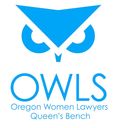As a follow-up to our monthly Queen's Bench luncheon on April 12, 2011, our speaker shared with us her notes on using our existing skillsets to expand our practices globally. Enjoy!
Incorporating Small Steps into Big Career Opportunities: An International Experience
By Lisa LeSage
YOU DON’T HAVE TO LEAVE THE LAW, JUST JAZZ IT UP A LITTLE
Lots of us who have been in practice a long time think about how it would be nice to add a little pizzazz to our lives, look at what appears to be “fun stuff” that others are doing, like helping with domestic violence cases, refugee rights, international human rights issues, but think, “there is no way I can do that, since I don’t have the connections, skills, experience.”
We may not even be thinking so much about changing what we are doing, or leaving the practice of law, but either taking a vacation and doing something different with it, or incorporating something into our “after hours” professional lives, or actually making a big leap and moving on – not out of the law, but doing something different in law.
GIVE YOURSELF PERMISSION TO DREAM
If you don’t take time for yourself to do it, you never will. You take time to do your nails, and other small personal things that make you feel better. So just put one more thing on your list – “dream.” Set aside a couple times a week (can be 20-minute slots), and actually put it on your calendar so you will do it – make it manageable. “DT” (Dream Time) or “CT” (Career Time). Use it to surf the web wildly, and make list of all the fun and/or interesting potential opportunities out there, from the ridiculous to the sublime.
So your resume looks like a bowl of spaghetti tossed on the floor? Not so fast – we lawyers instantly categorize ourselves into “substantive silos” where we stare longingly out at the other silos, thinking, “I can’t get there from here.” Instead of thinking about categories, start to think about details. Once you deconstruct your silo, you will find that you have a lot of transferable skills. Use your “CT” or “DT” time to brainstorm, listing every little detail about what you know how to do – make a list of broad categories, and fill it in with minutia.
General skills: Most of us, especially those who are in small firms, have several of these skills, but we never think of ourselves in this way, we are “lawyers” first:
After I take stock, what can I do to “beef up my resume?” Or what can I do to build some of the skills I want to develop. NGOs in the U.S. and abroad, as well as foundations, law schools and other entities doing “global work” look for people who have experience in their own back yard, doing things like:
There’s no reason you have to start from scratch or cold call:
It’s easier than you think, especially if you take small steps, and it mainly just takes a willingness to take some time for yourself, to be willing to reach out and try for something but fall short. Keep in mind the mantra, “If I risk nothing, I go nowhere.” You had to screw up the courage to go to law school, take the bar, represent your first client, do your first trial – you can do this.
Incorporating Small Steps into Big Career Opportunities: An International Experience
By Lisa LeSage
YOU DON’T HAVE TO LEAVE THE LAW, JUST JAZZ IT UP A LITTLE
Lots of us who have been in practice a long time think about how it would be nice to add a little pizzazz to our lives, look at what appears to be “fun stuff” that others are doing, like helping with domestic violence cases, refugee rights, international human rights issues, but think, “there is no way I can do that, since I don’t have the connections, skills, experience.”
We may not even be thinking so much about changing what we are doing, or leaving the practice of law, but either taking a vacation and doing something different with it, or incorporating something into our “after hours” professional lives, or actually making a big leap and moving on – not out of the law, but doing something different in law.
GIVE YOURSELF PERMISSION TO DREAM
If you don’t take time for yourself to do it, you never will. You take time to do your nails, and other small personal things that make you feel better. So just put one more thing on your list – “dream.” Set aside a couple times a week (can be 20-minute slots), and actually put it on your calendar so you will do it – make it manageable. “DT” (Dream Time) or “CT” (Career Time). Use it to surf the web wildly, and make list of all the fun and/or interesting potential opportunities out there, from the ridiculous to the sublime.
- ABA’s ROLI initiative
- Consultant to global nonprofit groups doing domestic violence work, children’s issues, immigration issues, micro lending issues, rule of law education, litigation training, workshops for law students and judges on substantive or procedural issues
- Lawyers Without Borders
- MercyCorps, World Wildlife Fund, etc.
- UN, World Bank, InterAmerican Court of Human Rights consultancies
- Fulbright Specialist Program, where you sign up and just need to do two or three weeks in a five-year period
- Law schools, specialty schools and universities in foreign countries, on any topic
So your resume looks like a bowl of spaghetti tossed on the floor? Not so fast – we lawyers instantly categorize ourselves into “substantive silos” where we stare longingly out at the other silos, thinking, “I can’t get there from here.” Instead of thinking about categories, start to think about details. Once you deconstruct your silo, you will find that you have a lot of transferable skills. Use your “CT” or “DT” time to brainstorm, listing every little detail about what you know how to do – make a list of broad categories, and fill it in with minutia.
General skills: Most of us, especially those who are in small firms, have several of these skills, but we never think of ourselves in this way, we are “lawyers” first:
- Managerial, employment and delegated authority experience – e.g., staff management, can be anything from PTA committee to small firm management
- Budget experience
- Language training or experience
- Teaching or coaching experience
- Program design or management experience
- Experience working with diverse populations, especially refugee, immigrant, low income, elderly, persons with disabilities other “special” group
- Board governance experience
- Experience with legislative or policy issues
- Substantive experience in any area of law
- Legal research and writing experience – important nowadays as legal practice becomes more global – foreign firms and NGOs need research on everything from antitrust issues to human trafficking, and don’t have a) the legal research and writing training US lawyers have or b) access to legal research databases, even the free ones
- Advocacy experience, whether written or oral
- Law firm or CLE training experience, adjunct professor experience, any speaking/training experience
- Bar organization experience, everything from Oregon Women Lawyer committees to service with National Lawyers Guild, ACLU, Multnomah Bar Association or Oregon State Bar section executive committees
- Experience with policy-related issues, whether from serving on a local or regional board or representing clients
After I take stock, what can I do to “beef up my resume?” Or what can I do to build some of the skills I want to develop. NGOs in the U.S. and abroad, as well as foundations, law schools and other entities doing “global work” look for people who have experience in their own back yard, doing things like:
- Amicus briefs in immigration cases
- Pro bono work with legal aid civil rights cases such as fair housing, domestic violence, juvenile or consumer issues, etc.
- Volunteering to be moot court judge for Classroom Law Project or law school moot court, high school civics courses.
- Adjunct professor at law school, community college, PSU
- Organize or speak at CLEs on a variety of topics
- Get on a screening committee for local judges, or a Bar disciplinary committee – lots of OSB volunteer opportunities that go begging
- Look at statewide commission vacancies that are appointed by the Governor, like the Psychology Licensing Board, Ethics Commission, Wage and Hour Commission, etc.
- Get involved with a legislative issue, especially policy issues that the bar or a legal services organization or other nonprofit is interested in, such as basic worker rights, low-income housing preservation, affordable health care, environmental justice.
- Get involved with a local business services group, such as Mercy Corps, or Oregon Minority Entrepreneurs, the Hispanic Chamber, etc. or organizations which do business advising, or provide micro lending services, to recent immigrants, women, low income groups, and minority clients.
There’s no reason you have to start from scratch or cold call:
- Go back to your law school career services office, get list of alumni living overseas, or who are doing work in an area you are interested in, they can sort all kinds of data now; plus most of the offices will have booklets with NGOs you can work with
- Think about your old law school professors – many of them have lots of connections overseas, that you don’t even know about
- Former clients, members of boards you serve on, and local groups, such as Mercy Corps, NW Worker’s Justice Project, Immigration Counseling Service, to name a few, all have boards and staff, many of who have excellent international connections.
- Don’t forget your undergraduate school either – most of them are a bigger goldmine than law school, have great international student offices, that can help you get connected to different projects students are working with, also to even house visiting professors, who often are here just for a week or so, and who have great connections
- Form relationship with a law school in a foreign country and teach a short course during vacation – most don’t necessarily require the language, and many teach in English, most programs are undergraduate.
- Get involved in World Affairs Council – amazing way to meet dignitaries, academics and business people from all over.
- Don’t be afraid to ask colleagues to help you out with a letter of reference or to just be listed as a reference. Do the job for them and make it easy - Be sure to give them the position description, your resume, and an “elevator speech” they can use.
It’s easier than you think, especially if you take small steps, and it mainly just takes a willingness to take some time for yourself, to be willing to reach out and try for something but fall short. Keep in mind the mantra, “If I risk nothing, I go nowhere.” You had to screw up the courage to go to law school, take the bar, represent your first client, do your first trial – you can do this.



